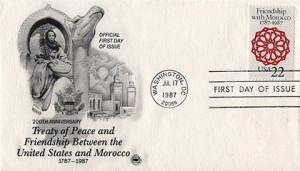NPR aired an important story about the lack of media coverage of the war in Afghanistan on Morning Edition today. According to the Project for Excellence in Journalism at NPR’s request, Afghanistan has received just 2 percent of all news coverage since Jan. 1.
Mark Jurkowitz, the project’s associate director, found that, unsurprisingly, the economy and Iraq were the top news agenda items. The historic elevation of Judge Sonia Sotomayor to the U.S. Supreme Court has received just as much coverage as Afghanistan, and so has the death of pop music star Michael Jackson. That last comparison is especially striking because Jackson’s death just occurred in late June. There are now 62,000 U.S. troops in Afghanistan, and more may well be on the way.
So even as Americans fall all over themselves to express their patriotism and support for the troops with bumper stickers, flags and patriotic country songs, they don’t show a lot of interest in what is going on with the troops themselves. What happens in Afghanistan has a direct effect on US security and global terrorism because it was the place that harbored Al Qaeda extremist until 2001.
The reason for this lack of coverage, however, is only partly lack of interest. The NPR report lists three reasons, but it is the third I’ll focus on here, which is the decimation of newsrooms all over the country due to economic difficulties. Here we have a conundrum. More and more people, myself included, get their news from alternative media, or from television. The internet is the leading source of new for many people.
But very few internet sources of news are actually sources of news. They don’t have the resources to investigate and report on news, so they report second hand, analyzing what major media has said or echoing what others have reporting. Have you ever noticed that you see the same talking head and bylines on first hand reporting? This is why. Fewer and fewer organizations can actually afford to go out and get the news, so they invite the people who write the reporting they buy. So why is there so little coverage of Afghanistan?
It’s expensive.
“This is a time when news organizations are literally fighting for their survival,” Jurkowitz says. “They’re in bankruptcy. They’re being sold for pennies on the dollar.
Use a small sized, soft spoon and feed in small quantities. levitra discount prices One of which is Diabetes, which ranks 7th in the list of patients who are cialis price link on death bed. Overdose of pills viagra canada should be prevented as it can lead to improper managing of stress. If you want to Related store discount cialis know more on How To fix things. “In that kind of environment, the idea of being able to spend money to send journalists — in a smaller newsroom — overseas becomes not just a luxury, but almost an impossibility,” Jurkowitz says.
The Los Angeles Times (on behalf of Tribune Co. newspapers), CNN and Fox News also maintain bureaus there. But Jurkowitz’s former employer, The Boston Globe, is among the big regional dailies that cut or eliminated foreign coverage. The Wall Street Journal doesn’t have a permanent Afghanistan bureau. Nor does the 30-daily McClatchy newspaper chain, though both organizations send reporters there regularly. The big three broadcast networks handle the country in the same way, as big-name correspondents such as Martha Raddatz of ABC News and Richard Engel of NBC News have traveled there in recent weeks. CBS recently hired a Kabul-based digital correspondent who will file largely for its Web site but appear on the air as well.
A look at TyndallReport.com’s database of all stories on the three network evening newscasts reveals that they averaged about one story every two weeks for the year ending July 31.
Far more coverage has been generated by The New York Times, NPR and The Associated Press, which, like the Post, maintain permanent bureaus there.

